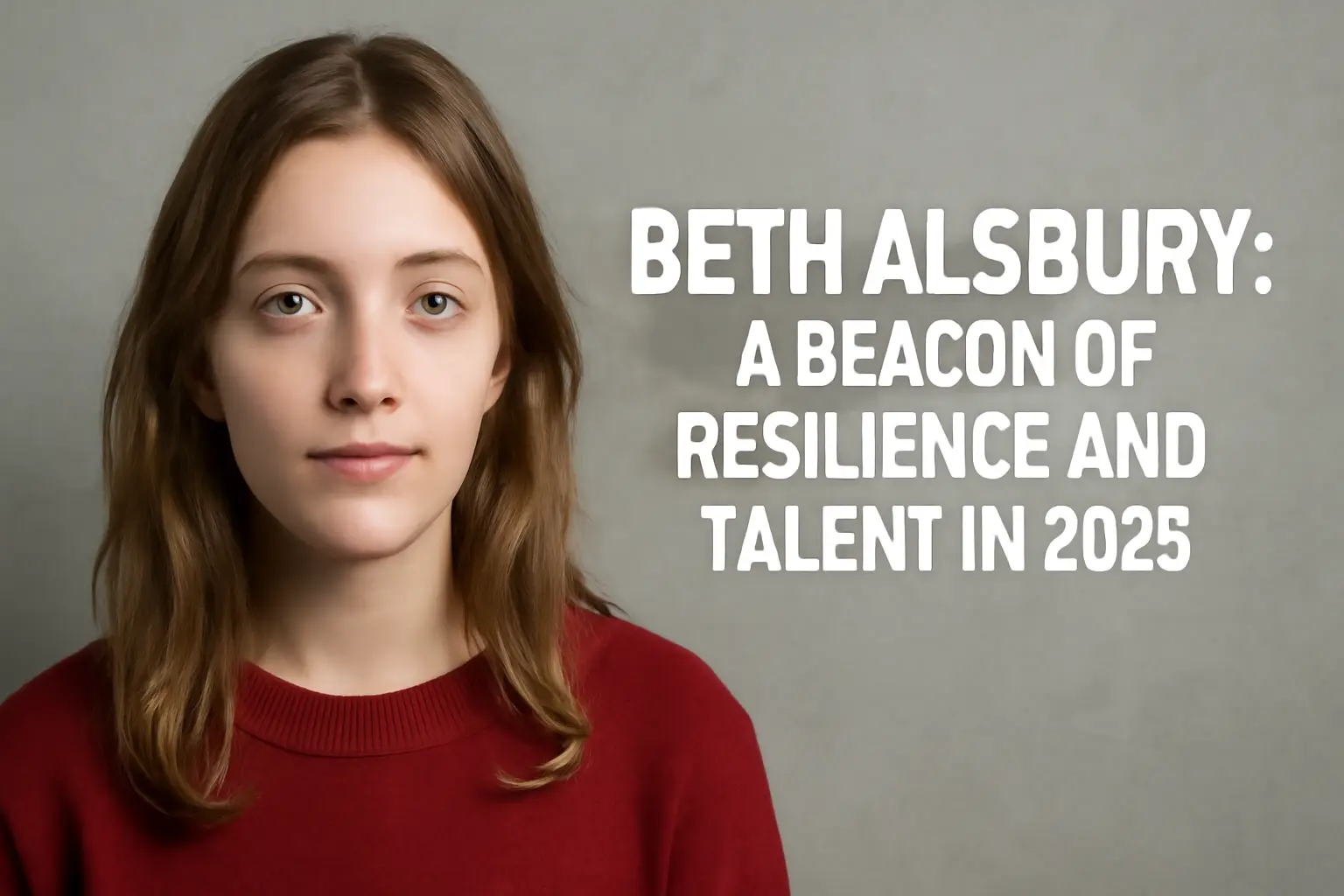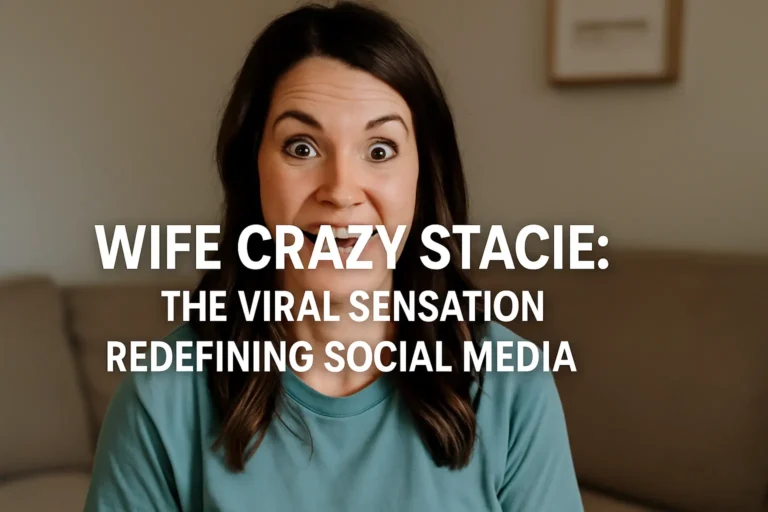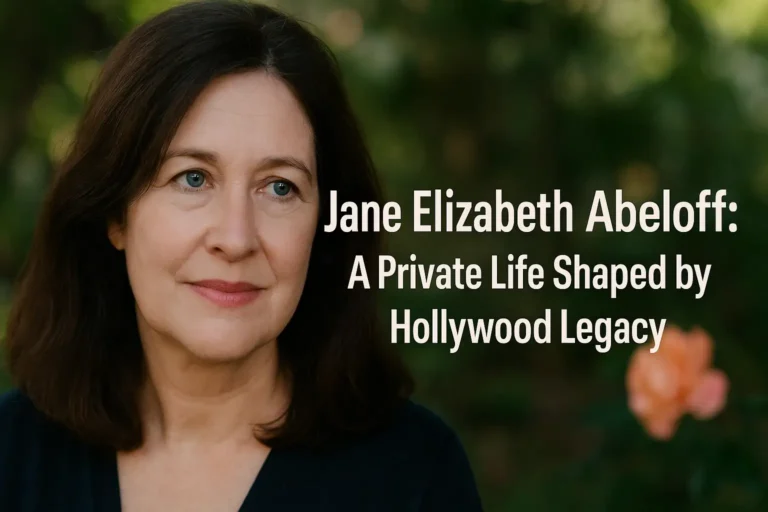Beth Alsbury: A Beacon of Resilience and Talent in 2025

Beth Alsbury has emerged as a powerful presence in the entertainment industry, captivating audiences with her role as Hannah Quinn in the 2023 Channel 5 thriller Blindspot. Born on December 25, 2000, in London, England, this British actress has not only showcased her acting prowess but also her remarkable resilience in living with spina bifida, a condition that affects her mobility.
In 2025, Beth continues to inspire through her authentic performances, advocacy for disability representation, and unwavering determination to pursue her dreams despite physical challenges. Her journey is a testament to the idea that disabilities do not define one’s potential, making her a role model for aspiring actors and individuals with disabilities alike.
Early Life and Background
Beth Alsbury was born into a family that cherished the arts, with her parents, David and Helen Alsbury, both teachers and amateur actors. Raised in London, she grew up in a creative environment that nurtured her passion for performing.
Despite being diagnosed with spina bifida at birth, Beth’s childhood was filled with joy and artistic exploration. She attended The Nottingham Emmanuel School, where she excelled academically and in the arts, winning the Best Actress Award at the National Theatre Connections Festival in 2018.
Her early involvement in theater laid the foundation for her professional career, culminating in her graduation from the prestigious Royal Academy of Dramatic Art (RADA) in 2022 with a BA in Acting (H Level). I admire how her supportive family and early achievements shaped her path, reflecting a blend of talent and tenacity.
Understanding Spina Bifida
Spina bifida is a congenital neural tube defect where the spine and spinal cord fail to form properly during fetal development. This condition can result in a range of physical challenges, from mild to severe, depending on the type and location of the defect.
For Beth Alsbury, spina bifida has led to significant mobility limitations, requiring her to use a wheelchair. Despite these challenges, Beth has embraced her condition as part of her identity, channeling her experiences into her work. Spina bifida can also involve secondary issues like muscle weakness or nerve damage, but Beth’s ability to navigate these challenges with grace highlights her resilience.
I find her approach inspiring, as it shows how one can turn personal challenges into strengths.
Impact on Her Acting Career
Beth’s disability profoundly influences her career, particularly in her role as Hannah Quinn in Blindspot, a character who also uses a wheelchair. This alignment allows Beth to bring unparalleled authenticity to her performance, drawing from her lived experience to portray a brilliant hacker navigating a gritty estate.
Her work in Blindspot has been praised for its depth and realism, with co-star Ross Kemp noting the show’s inclusive casting as a strength, especially under director Jordan Hogg, who also has a disability (cerebral palsy). Beth’s ability to embody complex characters challenges stereotypes, proving that disability does not limit talent.
Beyond Blindspot, she has appeared in the 2021 film Irl and a stage production of A Christmas Carol, showcasing her versatility across mediums. I was moved by how her performances resonate, blending vulnerability and strength in a way that captivates audiences.
Personal Journey and Resilience
Living with spina bifida presents daily challenges, from mobility limitations to potential health complications, yet Beth approaches these with unwavering determination. She has shared that her condition requires adaptations, such as using a wheelchair and managing physical demands, but it has also given her unique perspectives that enrich her acting and personal life.
Her journey from a creative childhood to a professional actress reflects a commitment to pursuing her passion despite obstacles. Beth’s resilience is evident in her ability to balance the demands of a competitive industry while managing her condition, a feat that underscores her strength. I relate to her perseverance, as it reminds me of the importance of pushing forward despite setbacks.
Advocacy and Representation
Beth Alsbury’s presence in the entertainment industry is a powerful statement for disability representation. By taking on roles that reflect her reality, she helps dismantle stereotypes and promotes inclusivity in media. Her work in Blindspot, directed by someone with a disability and featuring a disabled lead character, highlights the importance of authentic storytelling.
Beth’s performances show that individuals with disabilities can portray complex, capable characters, challenging outdated narratives. While she keeps much of her personal life private, her visibility as an actress with a disability inspires others to embrace their identities and pursue their goals. I find her contribution to inclusivity uplifting, as it paves the way for more diverse representation in film and television.
Read more: Michelle Smallmon in 2025: A Trailblazer in Sports Broadcasting
Challenges and Strengths
Beth’s journey is not without challenges, but her strengths shine through.
Challenges
- Physical Limitations: Spina bifida affects mobility, requiring adaptations like wheelchair use, which can be demanding in a fast-paced industry. I understand how navigating sets or long filming days could pose challenges.
- Public Curiosity: As a public figure, Beth may face questions about her disability, which she navigates with privacy. I respect her ability to maintain boundaries despite interest.
- Industry Barriers: The entertainment industry can lack accessibility, but Beth’s success shows her ability to overcome these hurdles. I admire her tenacity in breaking through.
Strengths
- Authenticity: Her lived experience brings depth to her roles, making her performances resonate.
- Resilience: Overcoming daily challenges with spina bifida showcases her determination.
- Advocacy: By embracing roles that reflect her reality, she promotes inclusivity.
I find her ability to turn challenges into opportunities inspiring, reflecting a powerful mindset.
Beth Alsbury in 2025
In 2025, Beth continues to build her career, with Blindspot remaining a highlight of her portfolio. While specific details about new projects are limited, her trajectory suggests she’s poised for further success, potentially in film, television, or theater.
Her private nature means little is known about her personal plans, but her past work indicates a commitment to roles that challenge norms and inspire. I anticipate she’ll continue to take on meaningful projects that amplify underrepresented voices.
Read more: Pedro Vaz Paulo in 2025: A Visionary Leader Transforming Business and Technology
How to Support Beth’s Work?
To engage with Beth Alsbury’s journey:
- Watch Blindspot: Stream or watch the series to appreciate her authentic performance as Hannah Quinn. I enjoyed the show’s gripping narrative and her compelling role.
- Celebrate Representation: Support projects that feature diverse casts and authentic storytelling. I encourage exploring similar inclusive shows to amplify such voices.
- Respect Privacy: Given Beth’s private nature, focus on her work rather than personal details. I appreciate her choice to keep her life low-key, allowing her art to speak.
Comparing Beth to Other Actors with Disabilities
Beth’s journey aligns with other actors who advocate for representation:
- Compared to Others: Like actors such as RJ Mitte (Breaking Bad), who has cerebral palsy, Beth uses her platform to portray authentic characters with disabilities. While Mitte is more vocal about advocacy, Beth’s quieter approach still impacts through her roles.
- Unique Contribution: Her focus on authentic portrayal in Blindspot sets her apart, emphasizing lived experience over performative advocacy. I find her subtle influence powerful.
- Industry Impact: Both Beth and peers like Mitte contribute to a growing movement for inclusivity, but Beth’s emerging career suggests a bright future for further impact.
The Future for Beth Alsbury
Looking ahead, Beth is likely to continue her ascent in the entertainment industry, potentially taking on more roles that highlight disability representation. Her training at RADA and early successes suggest she may explore diverse genres, from drama to theater.
I hope she continues to inspire through projects that challenge stereotypes and showcase her talent. Her private nature may keep personal details scarce, but her professional trajectory points to a lasting influence in 2025 and beyond.
Frequently Asked Questions
What is Beth Alsbury’s disability?
Beth has spina bifida, a condition affecting the spine and mobility, requiring her to use a wheelchair.
How does spina bifida affect her life?
It impacts her mobility, but she navigates these challenges with resilience, using a wheelchair and adaptations.
What role does she play in Blindspot?
She plays Hannah Quinn, a hacker who uses a wheelchair, bringing authenticity to the role.
How does her disability influence her acting?
It allows her to portray characters with disabilities authentically, enhancing her performances and promoting inclusivity.
What other projects has she been in?
Beth has appeared in the film Irl (2021) and a stage production of A Christmas Carol.
What’s new for Beth in 2025?
While specific updates are limited, she continues to build her career, likely with new acting projects.
Conclusion
Beth Alsbury’s journey with spina bifida is a powerful narrative of resilience, talent, and authenticity. Her role in Blindspot and her broader contributions to disability representation highlight her impact in 2025. By embracing her condition and channeling it into her work, Beth inspires others to pursue their dreams, proving that challenges do not define potential. Her story is a reminder of the strength found in authenticity and perseverance.
Key Takeaways
- Beth Alsbury lives with spina bifida, using a wheelchair for mobility.
- Her role as Hannah Quinn in Blindspot reflects her lived experience, earning acclaim for authenticity.
- She inspires through her resilience and advocacy for disability representation in media.






